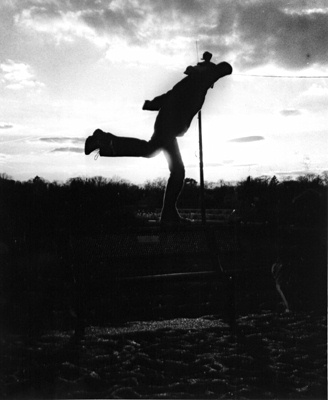All Nonfiction
- Bullying
- Books
- Academic
- Author Interviews
- Celebrity interviews
- College Articles
- College Essays
- Educator of the Year
- Heroes
- Interviews
- Memoir
- Personal Experience
- Sports
- Travel & Culture
All Opinions
- Bullying
- Current Events / Politics
- Discrimination
- Drugs / Alcohol / Smoking
- Entertainment / Celebrities
- Environment
- Love / Relationships
- Movies / Music / TV
- Pop Culture / Trends
- School / College
- Social Issues / Civics
- Spirituality / Religion
- Sports / Hobbies
All Hot Topics
- Bullying
- Community Service
- Environment
- Health
- Letters to the Editor
- Pride & Prejudice
- What Matters
- Back
Summer Guide
- Program Links
- Program Reviews
- Back
College Guide
- College Links
- College Reviews
- College Essays
- College Articles
- Back
Justification for Revenge's Unjustification
As a culture, people are fascinated by revenge. It is the basis of many TV shows, films, and novels. For example, TV shows such as Revenge, House of Cards, and Dexter provide various vengeful plots throughout the series. Even the children’s movie, The Lion King, has a strong revenge plot. Works of literature read in most high school English classes such as Hamlet and Antigone provide strong revenge plots as well.
Since people can relate to the many trials and tribulations that come along with seeking revenge, “revenge novels are so ubiquitous in modern mass culture that Americans often adopt them” as Christopher Wilson stated. These novels ask if revenge is justifiable. If so, under what circumstances, and how? Do people justify revenge to relieve guilt?
In my case, through the reading of revenge-based novels for my AP Lit inquiry essay, I found it increasingly harder to justify the many aggressive, and quite honestly, immature, violent revenge that these characters pursue. In the works of Hamlet, Medea, The Count of Monte Cristo, and Frankenstein, the characters who seeks revenge reach an epiphany: vengeance does more harm than it does good.
In these books, revenge becomes an all consuming phenomenon, leading the character down a dark path toward self-destruction. Characters isolate themselves from their loved ones and become unrecognizable when all their efforts are put into violence. Though in the end, those who wish to justify their actions always find a way to do so. However, in reality, there is no justification. People are compelled to seek retribution because they feel a white-hot rage and the action of taking revenge seems like the best and most cathartic way to mend their pain.
To put it simply: revenge is self-destructive. Gandhi said, “an eye for an eye only makes the whole world blind.” Similarly, Confucius stated, “before you embark on a journey of revenge, dig two graves.” Although some people may realize the repercussions of their violence, they still continue to seek revenge because they wish to cause the same amount of pain, if not more, than they had endured. Yet, in the heat of the moment, they all proceed to commit the same crimes. All these characters in these classic revenge novels are responsible for their actions and only realize the true effects of their wrongdoings after it is too late. The authors allow these characters to spiral out of control in order to show readers the horrid effects of revenge. The readers crawl further into these characters’ minds, allowing them to connect on a deeper emotional level with these anger-filled characters.
Dan Ariely, a psychology and behavioral economics professor at Duke University, has performed experiments in order to locate the part of the brain that takes part in making decisions about revenge. The results showed elevated activity in the striatum, more generally known as the reward center of the brain. As the participant bestowed greater punishment onto the victim, the activity in the striatum became larger. Revenge and trust have a direct correlation. If people feel a loss of trust, they are more likely to seek punishment onto the individual who took advantage of their trust.
Revenge surrounds us, and the instinct for revenge is natural. Revenge makes for enticing plots in novels, but in real life, they make for poor development and growth. Many seek revenge to show strength, but in reality, forgiveness shows strength. Although we may be tempted to right a wrong, we must consider whether the lost of trust that goes hand-in-hand with revenge is justified. We must strive to become better versions of ourselves by looking deep within ourselves to find compassion before we are past the point of return.

Similar Articles
JOIN THE DISCUSSION
This article has 0 comments.

I was inspired to write this piece after writing my term paper for my AP Literature and Composition class. Our class had to create an action project related to our term paper, and mine was on the unjustification of revenge. I wrote this piece to help others realize the futility of revenge and hope that those who read my piece will reflect on their actions and change their way of thinking.